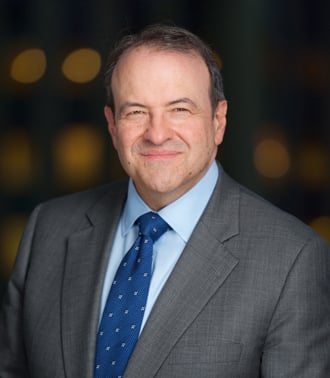Haven’t I Seen These Allegations Before? FCA’s Public Disclosure Bar Forecloses Suit
In a recent decision, U.S. ex rel. Piacentile v. U.S. Oncology, Inc., No. 22-18 (2d Cir. Mar. 28, 2023), the Second Circuit held that the FCA’s public disclosure bar required dismissal because the kickback scheme relators alleged had already been revealed in prior suits and relators were not “original sources.” Along with another recent Second Circuit decision, these decisions show that the Second Circuit will continue to apply a muscular public disclosure bar to dismiss “parasitic” suits.
In their qui tam suit, relators Dr. Joseph Piacentile and Kevin Kilcoyne alleged that defendants U.S. Oncology, Inc. and Amgen were involved in a kickback scheme that led to U.S. Oncology’s submitting claims in violation of the FCA. The district court dismissed the suit because it concluded that it lacked subject matter jurisdiction under the FCA’s pre-2010 public disclosure bar and, in the alternative, because relators failed to satisfy FRCP 9(b)’s heightened pleading standard. Relators appealed.
The Second Circuit agreed with the district court that it lacked jurisdiction under the public disclosure bar because several prior suits — one a private antitrust suit and two others by county governments alleging kickbacks — had already disclosed the alleged kickback scheme. Although the prior complaints in these suits did not identify U.S. Oncology by name, the Second Circuit explained that this was not necessary if the public disclosures “identify[] enough about a transaction that additional parties are discoverable.” The court found that standard satisfied because the prior complaints alleged that Amgen and its customers (among whom U.S. Oncology was one of Amgen’s “major” customers) were involved in the fraud, and they identified the same Amgen drugs and kinds of kickbacks — including rebates, off-invoicing pricing, free goods, educational grants, and volume discounts — that relators identified in their suit.
The Second Circuit also dispatched with relators’ argument that they satisfied the “original source” exception to the public disclosure bar, which, under the pre-2010 statute, required that relators possess “direct and independent knowledge of the information” on which they based their allegations. Relators could not satisfy that test because, rather than having direct and independent knowledge of the alleged fraud, relators learned of the misconduct second-hand from interviews Piacentile conducted with executives at Amgen and U.S. Oncology. And although Kilcoyne personally “deliver[ed] checks from Amgen to U.S. Oncology’s practices,” relators failed to explain how this “gave [Kilcoyne] direct and independent knowledge” of Amgen’s operations or the alleged kickback scheme, or demonstrated that the allegations in the operative complaint were “based on” Kilcoyne’s information. Because relators were not “original sources” of the information, the Second Circuit held that the public disclosure bar “deprive[d] the federal courts of jurisdiction to hear this suit.”
Given the lack of jurisdiction, the Second Circuit declined to assess whether relators’ claims satisfied the pleading standards of FRCPs 9(b) and 12(b)(6).
The Second Circuit’s decision reinforces how claims “based in any part upon publicly disclosed allegations or transactions” are subject to the FCA’s public disclosure bar, even if such prior disclosures do not mention a party to the purported fraud by name. In addition, the decision further demonstrates that relators whose information is second-hand and “indirect,” i.e., derived from witness interviews, cannot satisfy the “original source” exception to the bar. We at Qui Notes will keep an eye out for similar cases addressing the scope of the public disclosure bar and “original source” exception.
© Arnold & Porter Kaye Scholer LLP 2023 All Rights Reserved. This blog post is intended to be a general summary of the law and does not constitute legal advice. You should consult with counsel to determine applicable legal requirements in a specific fact situation.


